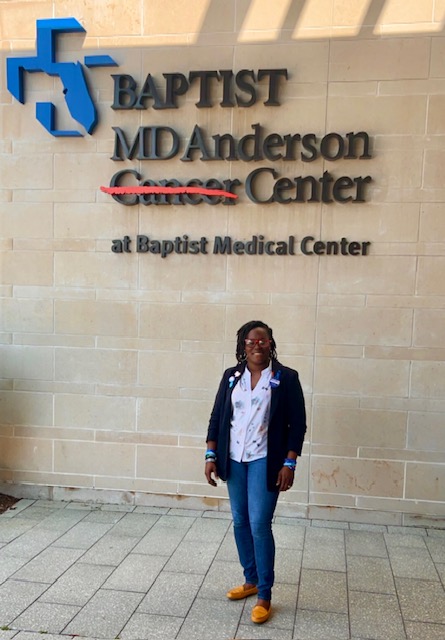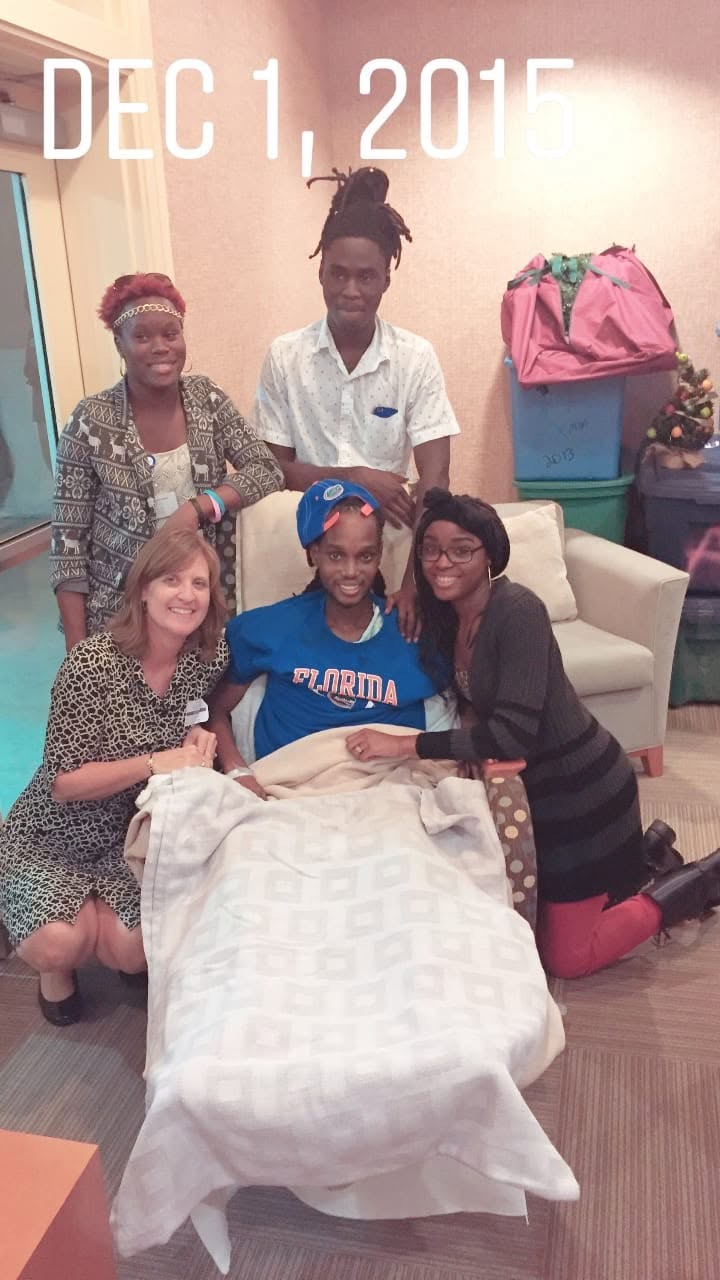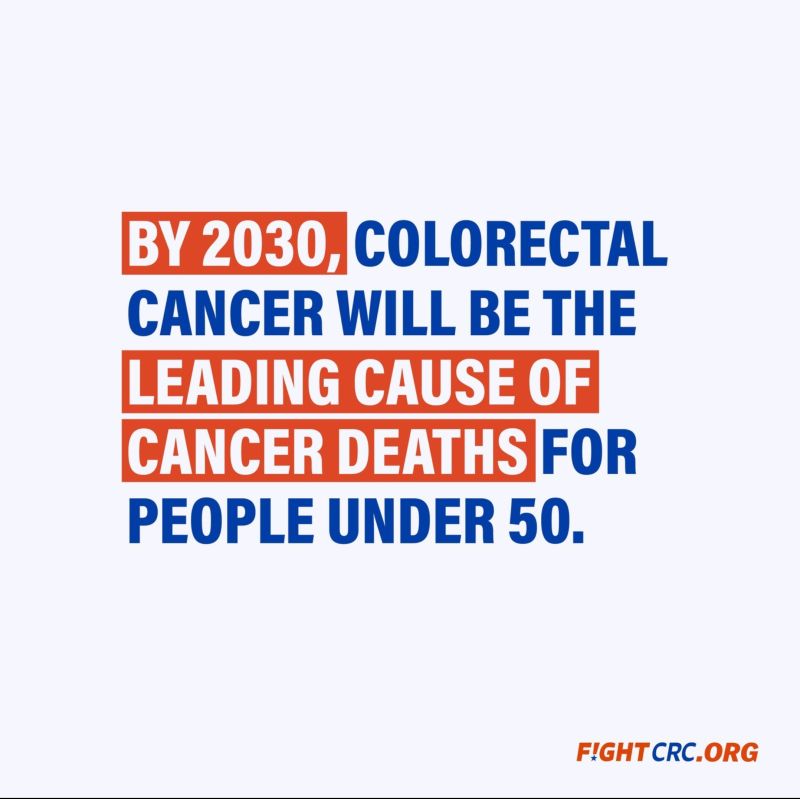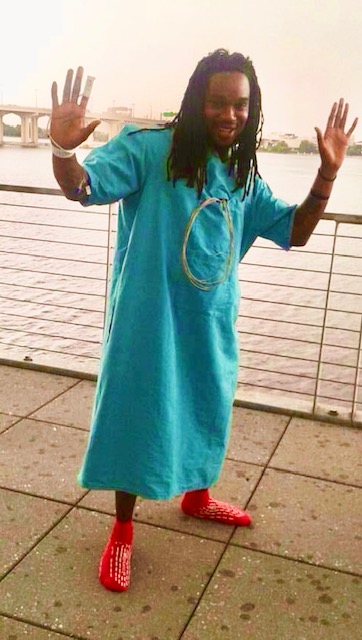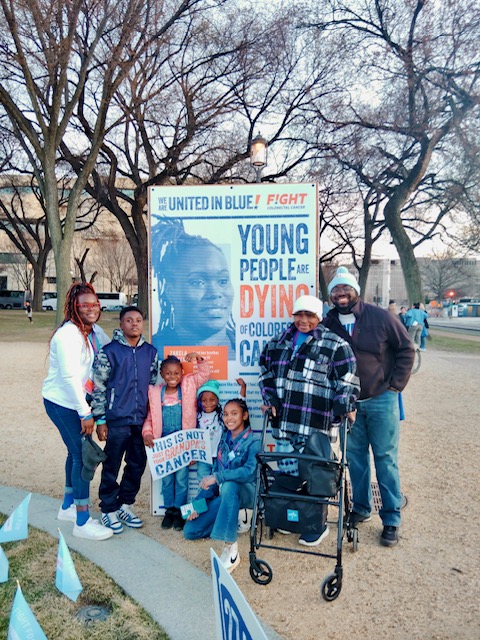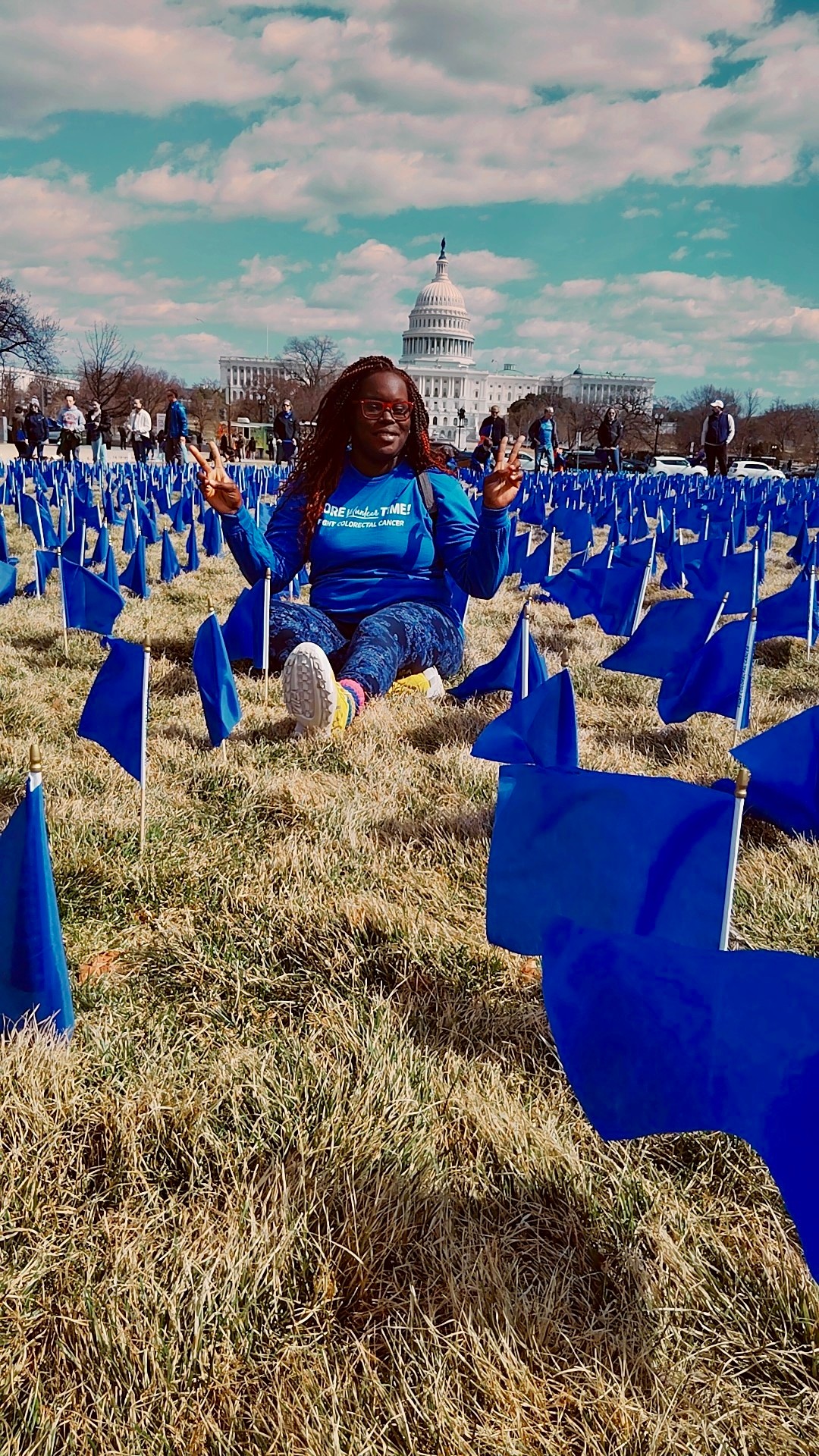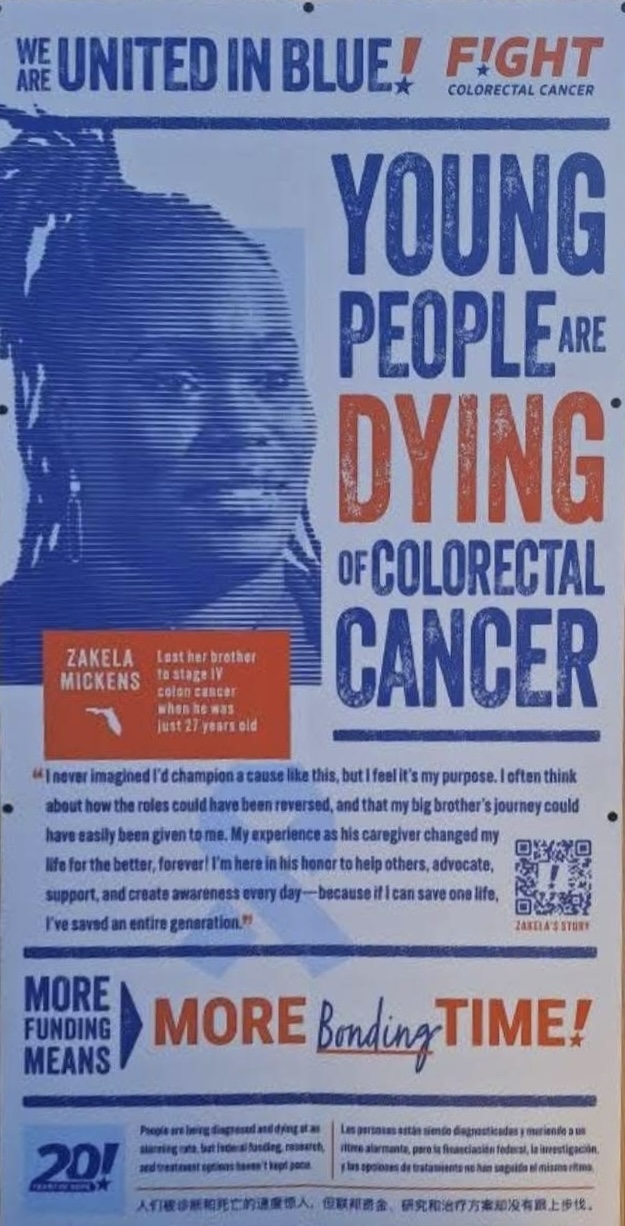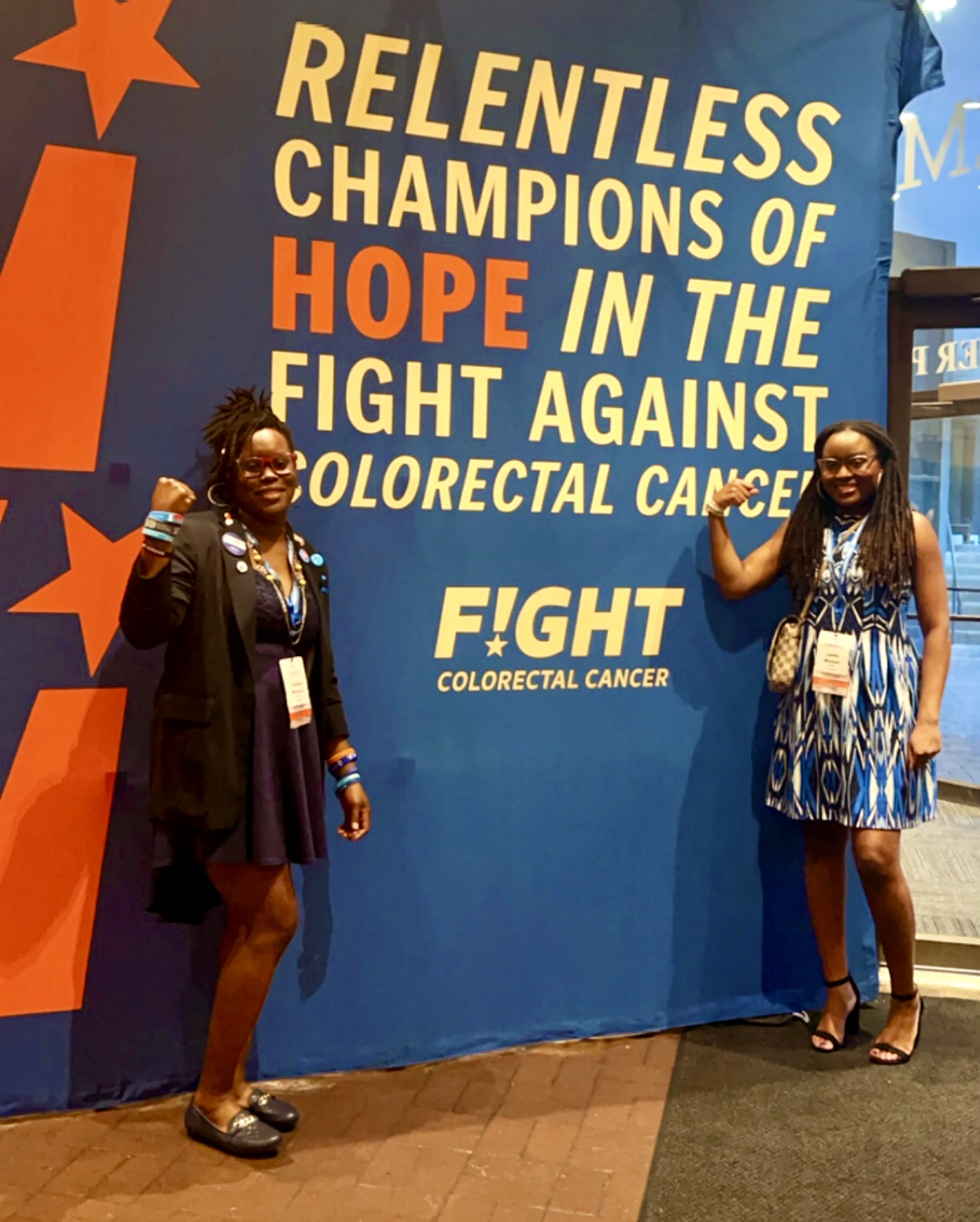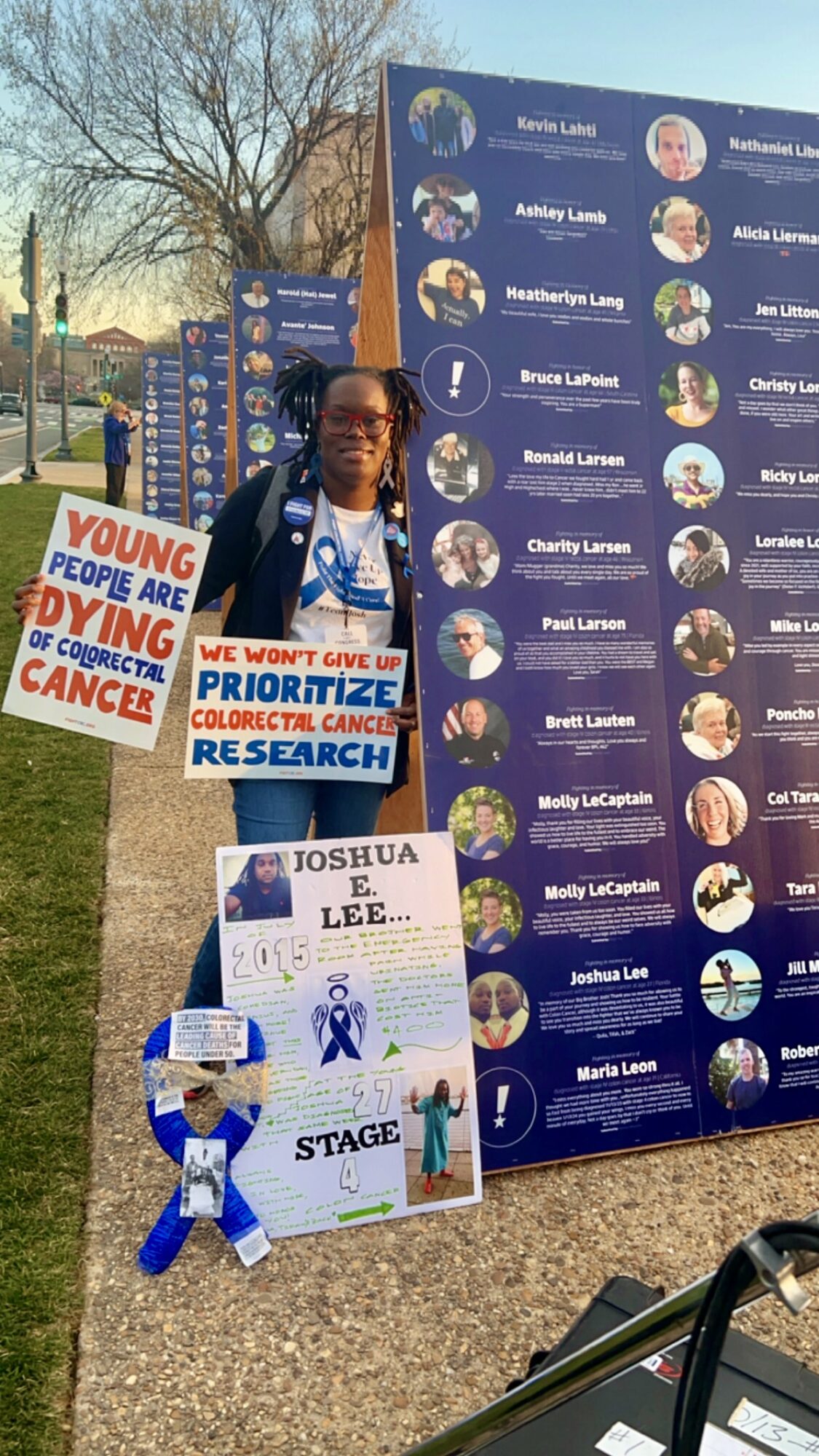

Today we’d like to introduce you to Zakela Mickens
Hi Zakela , can you start by introducing yourself? We’d love to learn more about how you got to where you are today?
In July of 2015, my oldest brother Joshua was diagnosed with Stage 4 colon cancer at just 27 years old, with no prior signs or symptoms. The news was devastating, and it was only after genetic testing that we learned Joshua had mutations in one copy of the MLH1 gene, which is associated with Lynch Syndrome. This gene significantly increases the risk of colon cancer and other cancers throughout a person’s life.
Not long after Joshua’s diagnosis, my sister and I were also tested and discovered that we both carry the same genetic mutation—Lynch Syndrome. Learning that we shared the same genetic predisposition was a sobering reality, and it reinforced just how important early screenings and genetic testing are for anyone with a family history of cancer.
When Joshua was diagnosed, I became his primary caregiver, supporting him through his six-month battle with Stage 4 colon cancer. Despite his strength and will to fight, we lost him to the disease. His passing left a hole in my heart that will never be filled, but it also fueled my commitment to advocating for others so that they won’t have to face the same heartbreak we did.
In 2021, I became an advocate with Fight CRC, and in 2025, I was honored to become an ambassador for the organization. Through my advocacy, I share Joshua’s story, raise awareness about Lynch Syndrome, and push for earlier genetic testing and colon cancer screenings. I am driven to ensure that no one else experiences the pain of losing a loved one to preventable cancer.
I recently had the incredible opportunity to participate in the annual Call on Congress in Washington, D.C., where we advocated for increased funding for colorectal cancer research, expanded access to screenings, and the establishment of the Congressional Colorectal Cancer Caucus. Our goal was to raise awareness and push for meaningful policy changes at the federal level.
During my time there, I met with the staff of Senator Ashley Moody, Senator Rick Scott, Representative Kat Cammick, and Representative John Rutherford to discuss the importance of funding and research for colorectal cancer, particularly through the Congressionally Directed Medical Research Programs (CDMRP), which plays a vital role in advancing critical research.
One of the most powerful moments of the event was placing 27,400 flags on the National Mall in front of the U.S. Capitol—each flag representing a person projected to be diagnosed with colorectal cancer by the year 2030. It was a sobering yet impactful visual reminder of why this fight is so urgent.
I document “Joshua’s Journey” on my YouTube channel, @TheCinchOnLynch, where I share the story of his diagnosis and untimely passing, along with my ongoing efforts to raise awareness about colorectal cancer, Lynch Syndrome, and the importance of early detection. This cause is personal to me—it’s my brother’s legacy, and it’s my mission to honor him by helping others avoid the suffering we experienced.
Alright, so let’s dig a little deeper into the story – has it been an easy path overall and if not, what were the challenges you’ve had to overcome?
The journey I’ve taken, from the shock of Joshua’s diagnosis to my current role as an advocate, has not been without its challenges. The road was far from smooth, and there were many moments where I felt overwhelmed, uncertain, and even helpless.
The Shock of Joshua’s Diagnosis:
When Joshua was diagnosed with Stage 4 colon cancer, it felt like a punch to the gut. He was so young, and his diagnosis came out of nowhere—no symptoms, no warning signs, that would point to Stage 4 Colon Cancer. Upon finding out that his lynch syndrome diagnosis was due to a hereditary genetic condition was even more of a shocker, because we had never known of anyone in our family having cancer. The grief of facing the harsh reality of cancer hit me hard, and I often found myself struggling to comprehend how something like this could happen to someone so full of life. On top of that, having the same genetic mutation as Joshua, knowing the potential risks for my own health, brought a constant undercurrent of fear and anxiety.
Becoming a Caregiver:
Taking on the role of Joshua’s caregiver was one of the most challenging things I’ve ever done. Caring for him while managing the emotional toll of watching him fight such a devastating disease was exhausting. There were moments when I felt like I couldn’t go on, as his condition worsened and my own strength seemed to falter. I had to navigate doctor’s appointments, treatment options, and the overwhelming weight of being his primary source of support. There was no instruction manual for how to care for someone facing Stage 4 cancer, and I often felt like I was stumbling through it all, just trying to keep him comfortable while balancing my own emotional turmoil.
The Grief of Losing Joshua:
After losing Joshua, the grief was unbearable. It was not just the loss of my big brother—it was the loss of the dreams we had for the future, the plans we never got to make. His death shook me to my core. I felt lost and broken, and the emotional weight of it all often left me struggling to find purpose. I didn’t know how to move forward or what direction to take. The journey of grief is never linear; there were days I felt like I was taking two steps forward and then five steps back.
Facing My Own Health Concerns:
After Joshua’s diagnosis, my sister and I learned that we also carry the same genetic mutation. For a while, I was consumed by fear and uncertainty about my own health. Even though I was passionate about advocating for others, it was hard not to feel like a hypocrite—telling people to get tested and screened when I was so scared to face my own health reality. I struggled with the weight of my family’s history of cancer and the constant reminder that I was at risk. The emotional toll of waiting for my own screenings and tests often felt like an ongoing battle.
The Struggles of Advocacy:
Becoming an advocate for colorectal cancer awareness and Lynch Syndrome was a decision I made out of love for my brother and a desire to honor his memory, but the journey to becoming an advocate was anything but easy. There were moments when I felt overwhelmed by the weight of the cause. There were also times when I doubted my ability to make a real difference. The work can be emotionally draining, especially when I’m reminded of my own family’s pain, and there have been times when I questioned whether I was doing enough. But despite these doubts, I pushed forward, because I knew Joshua’s story needed to be shared, and I knew I had to make sure his legacy wasn’t forgotten.
Navigating Family Dynamics:
Grief and loss often bring complicated emotions, and the experience of losing Joshua was no different. My siblings and I had to learn how to grieve together while managing our own individual emotions. There were moments of tension, as we each processed the loss in our own way. The pressure of managing my grief while trying to support my family was another challenge that often left me feeling isolated. Finding a balance between my own emotions and being there for others wasn’t easy, and at times, it felt like I was carrying the weight of it all alone.
These challenges have shaped who I am today and strengthened my resolve to advocate for others. It hasn’t been easy, but I am proud of the work I’ve done and the difference I’ve been able to make in the lives of others. My journey is ongoing, and while it has been a difficult road, I continue to find purpose in the work I do in Joshua’s memory.
Alright, so let’s switch gears a bit and talk business. What should we know about your work?
I’m a wife and mother of four—one son and three daughters—and my journey has been deeply shaped by both my personal and professional experiences. I’m a Certified Birth Doula, a Certified Perinatal Educator, and I’m currently working toward my certification as a Breastfeeding Specialist. My work focuses on empowering families through some of life’s most transformative moments, supporting them with the knowledge, confidence, and care they need.
Originally from Jacksonville, I recently relocated to my husband’s hometown of Macclenny, Florida, in October 2023. Advocacy has always been a core part of who I am. Since childhood, I’ve been known for being outspoken and unapologetically speaking up for myself and others. My siblings and I didn’t have the easiest childhood, and it was through those challenging experiences that I learned resilience. Growing up in difficult circumstances, I developed an unwavering strength to fight for what I believe in. I quickly learned how to persevere, how to speak up for myself, and how to push through adversity. These lessons from my childhood continue to fuel my work and my commitment to helping others.
What sets me apart is the way I view the world. It’s not just about having an opinion—it’s about having a deep, genuine desire to make lasting, meaningful change. Anyone can advocate for change, but my mission goes beyond the immediate. I aim to create a future where health, wellness, and joy are accessible to everyone, without stress, barriers, or chaos. I believe in the power of a selfless mission to inspire future generations, and that’s what drives me.
The journey of my big brother, Joshua, deeply impacted my life. He always believed in my potential, even when I didn’t see it in myself. His passing and the lessons I’ve learned from his journey led me to reevaluate my purpose and seek a deeper sense of identity and direction. His belief in me ignited my passion for advocacy, and it’s because of his journey that I’m driven to make a difference—not just for my family, but for every person who deserves a life of health and happiness.
Ultimately, what I’m most proud of is my ability to turn pain and hardship into purpose. I believe we all deserve to experience the fullness of life, and I will continue to advocate for a world where everyone can live without barriers, filled with joy and wellness.
Can you talk to us about how you think about risk?
Risk-taking is something I’ve come to view as an essential part of growth and change. Looking back, I can see that much of my life has been shaped by the risks I’ve taken—some big, some small—but all of them have taught me something important.
Growing up, my childhood wasn’t easy, and I learned early on the value of resilience and perseverance. My siblings and I didn’t have the best start, and I faced many challenges. But instead of allowing those challenges to define me, I took risks—emotionally, mentally, and later, professionally—by advocating for myself and my family. I took the risk of speaking out, standing up for what I believed in, and pushing through adversity, even when the odds were stacked against me. Those early risks built the foundation for the advocate I am today.
One of the most significant risks I took was when I decided to leave my hometown of Jacksonville and move to Macclenny, Florida. Relocating was a leap of faith, not just because of the change in location, but because it meant shifting my role in my community and my family. But that decision allowed me to grow in ways I hadn’t anticipated and provided new opportunities to continue my advocacy work.
Another major risk was stepping into the world of advocacy and volunteering, particularly in the areas of perinatal care, breastfeeding, and colorectal cancer awareness. There was always a part of me that felt unsure of whether my voice would matter or whether I would make an impact. But the journey I’ve had with my brother Joshua, especially his passing, pushed me to take those risks. I realized that advocating for causes close to my heart, like Lynch Syndrome awareness, would not only honor him but also help others who are facing similar challenges. And so, I took the risk of diving into these deeply personal topics, using my voice to create awareness and foster change.
Risk, to me, isn’t just about the potential for failure—it’s about the potential for growth, for learning, and for making a difference. I believe in taking risks when they align with my values and purpose. I may not always know the outcome, but I trust that the lessons I learn along the way will guide me. I see risk as an opportunity to impact the world, even in small ways. And for me, that is worth the leap.
Contact Info:
- Website: https://www.pbcmco.com
- Instagram: https://www.instagram.com/poweredbychocolatemilkco/?igsh=dzRwbm16MGVxY3I%3D&utm_source=qr#
- Facebook: https://www.facebook.com/share/1B6trjdg3F/?mibextid=wwXIfr
- LinkedIn: https://www.linkedin.com/in/zakela-mickens-a88221285?utm_source=share&utm_campaign=share_via&utm_content=profile&utm_medium=ios_app
- Youtube: https://www.youtube.com/@thecinchonlynch
- Other: https://www.instagram.com/p/DHl8kOttE1X/?img_index=2&igsh=ZTNjdjB0NW5pOHdl
